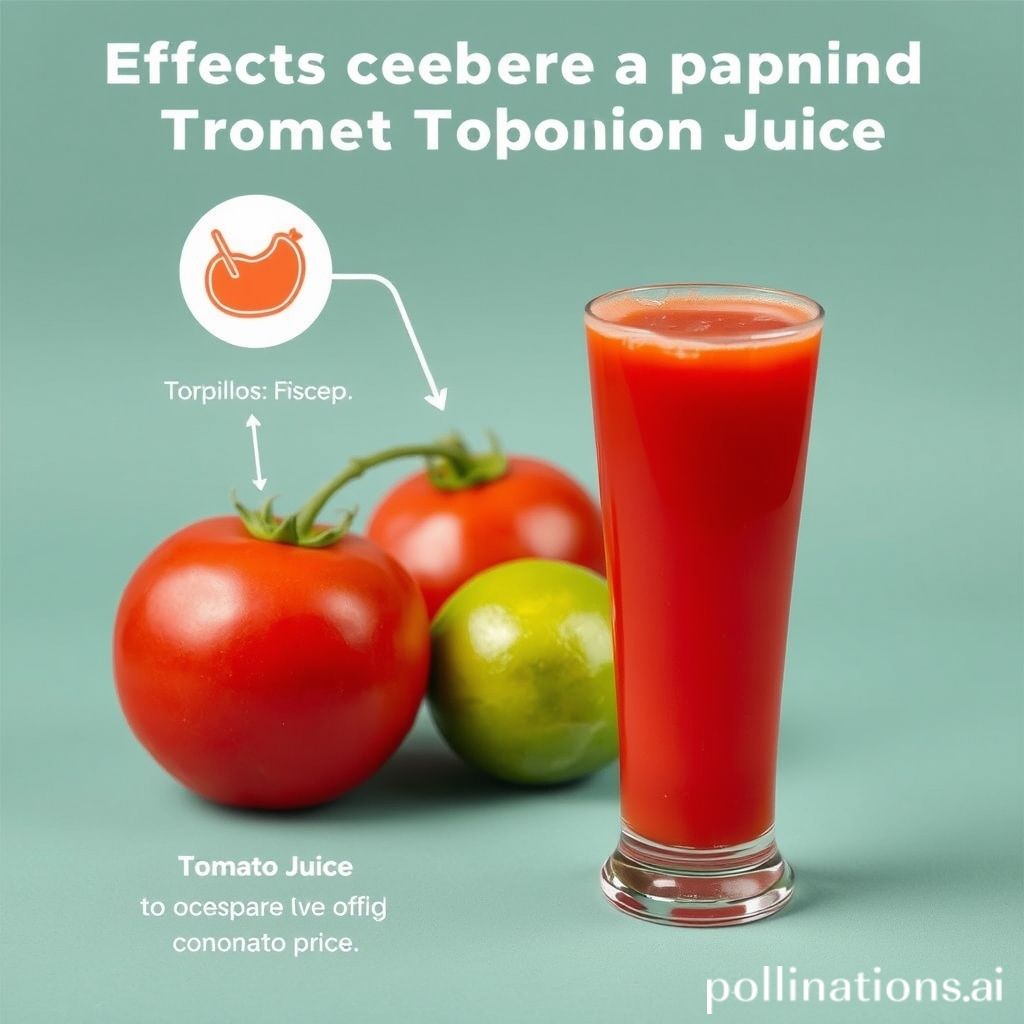What Happens If You Drink Expired Tomato Juice?
[su_note note_color=”#fb8e00″ text_color=”#000000″ radius=”12″]Drinking expired tomato juice can cause food poisoning and gastrointestinal discomfort.[/su_note]
Curiosity may have led you to wonder about the consequences of drinking expired tomato juice. Whether you’ve stumbled upon a neglected bottle in your pantry or simply have a thirst for knowledge, this article will shed light on the truth behind consuming expired tomato juice. By delving into the changes that occur and potential health risks involved, you’ll gain valuable insights to protect yourself and your loved ones.
So, let’s embark on this eye-opening exploration and uncover what really happens when you drink expired tomato juice.

Understanding the Effects of Tomato Juice Expiration
A. The Importance of Expiration Dates
Tomato juice, like any other food product, is labeled with an expiration date to ensure its freshness and quality. This date serves as a guideline for consumers and should be taken into consideration to avoid consuming expired tomato juice.
B. Changes in Taste, Color, and Texture
As tomato juice approaches its expiration date, noticeable changes may occur in its taste, color, and texture. The juice may become less flavorful, developing a slightly sour or off taste. Additionally, the vibrant red color of fresh tomato juice may fade, turning darker or even brownish. In terms of texture, the juice may become thicker or develop sediment at the bottom of the container. These changes indicate that the tomato juice is no longer at its best quality.
C. Potential Risks of Bacterial and Mold Growth
Expired tomato juice poses a potential risk of bacterial and mold growth. With age, the juice becomes more susceptible to microbial contamination. Bacteria such as E. coli or Salmonella can multiply in the juice, leading to foodborne illnesses if consumed. Mold growth is also possible, especially if the juice has been exposed to air or stored improperly. Consuming expired tomato juice increases the risk of food poisoning and other adverse health effects.
To ensure your safety and enjoy the best quality of tomato juice, it is advisable to consume it before the expiration date. If you notice any unusual changes in taste, color, or texture, it is better to discard the expired tomato juice to avoid potential health risks. Always store tomato juice properly in a cool and dry place to prolong its shelf life.
[su_highlight background=”#f6b40f”]Expert Tip: Consume tomato juice before expiration date to avoid health risks. Discard if taste, color, or texture changes. Store properly to prolong shelf life.[/su_highlight]
Health Risks of Drinking Expired Tomato Juice
A. Food Poisoning from Expired Tomato Juice
Drinking expired tomato juice can pose a risk of food poisoning. When tomato juice reaches its expiration date, harmful bacteria such as Salmonella or E. coli may start to grow. Consuming contaminated tomato juice can lead to symptoms like nausea, vomiting, diarrhea, and abdominal cramps. It is crucial to be aware of the expiration date and avoid consuming expired tomato juice to prevent the risk of food poisoning.
B. Gastrointestinal Issues Caused by Expired Tomato Juice
Expired tomato juice can cause gastrointestinal issues due to the breakdown of its components over time. The natural sugars present in tomato juice can ferment, resulting in the production of gas in the digestive system. This can lead to bloating, flatulence, and discomfort. Additionally, the acidity of expired tomato juice may irritate the stomach lining, causing indigestion or acid reflux. It is advisable to discard expired tomato juice to avoid potential gastrointestinal problems.
C. Risk of Allergic Reactions to Expired Tomato Juice
Drinking expired tomato juice can also increase the risk of allergic reactions in individuals with tomato allergies. Over time, the proteins in tomato juice may degrade, potentially triggering an allergic response in susceptible individuals. Symptoms of an allergic reaction can range from mild to severe, including skin rashes, itching, swelling, difficulty breathing, and in severe cases, anaphylaxis. It is essential for individuals with tomato allergies to avoid consuming expired tomato juice to prevent allergic reactions.
| Health Risks of Drinking Expired Tomato Juice |
|---|
| Food Poisoning |
| Gastrointestinal Issues |
| Risk of Allergic Reactions |
The Effects of Consuming Expired Tomato Juice
Impact on Digestion
Expired tomato juice can have adverse effects on digestion. When tomato juice expires, harmful bacteria may grow, leading to food poisoning symptoms like nausea, vomiting, diarrhea, and abdominal pain. The presence of these bacteria can disrupt the natural balance of gut flora, causing digestive discomfort.
Potential Nutrient Loss
Drinking expired tomato juice may result in nutrient loss. Over time, the nutritional content of tomato juice, particularly vitamins C and E, can degrade. These vitamins are crucial for a healthy immune system and protecting the body against oxidative stress. When tomato juice expires, the levels of these vitamins may decrease, reducing the potential health benefits of fresh tomato juice.
Upset Stomach
Consuming expired tomato juice can lead to an upset stomach. As tomato juice ages, it becomes more acidic, which can irritate the stomach lining and cause indigestion, heartburn, and stomach discomfort. Individuals with pre-existing digestive issues, like acid reflux or gastritis, may be more prone to experiencing these discomforts after consuming expired tomato juice.
To summarize, drinking expired tomato juice can have negative effects on the body, including digestive disruptions, potential nutrient loss, and upset stomach. It is crucial to check the expiration date before consuming tomato juice and discard it if expired to avoid these potential health risks.

Safety Precautions for Consuming Tomato Juice
Understanding Proper Storage and Handling
Proper storage and handling of tomato juice are crucial to maintain its safety and quality. Follow these guidelines to ensure the freshness of your tomato juice:
- Refrigeration: Refrigerate tomato juice promptly after opening the container. Store it at a temperature below 40°F (4°C) to inhibit the growth of harmful bacteria.
- Airtight Containers: Transfer leftover tomato juice into a clean, airtight container before refrigerating. This helps prevent contamination and extends its shelf life.
- Avoid Cross-Contamination: When handling tomato juice, use clean utensils and avoid contact with raw meat, poultry, or other potentially contaminated foods.
Explaining the Importance of Checking for Signs of Spoilage
It is essential to check for signs of spoilage before consuming tomato juice. Here’s what to look for:
- Expiry Date: Always check the expiry date on the tomato juice container. Consuming expired tomato juice can lead to foodborne illnesses.
- Appearance and Texture: Discard tomato juice if it appears moldy, has an off-color, or has an unusual texture. These are indications of spoilage.
- Off Odor: If the tomato juice has a foul or sour smell, it is best to discard it. Unpleasant odors can be a sign of bacterial growth.
Highlighting the Benefits of Consuming Fresh Tomato Juice
Fresh tomato juice offers numerous health benefits. Here are some reasons why you should consider consuming it:
- Nutritional Value: Tomato juice is rich in essential vitamins like vitamin C, A, and K. It also contains antioxidants and minerals that support overall health.
- Hydration: Tomato juice is a hydrating beverage that helps replenish fluids in the body.
- Heart Health: The lycopene present in tomato juice may help lower the risk of heart disease.
- Weight Management: Tomato juice is low in calories and can be a satisfying option for those watching their weight.
| Information | |
|---|---|
| Topic: | Safety Precautions for Consuming Tomato Juice |
| Subtopics: |
|
[su_note note_color=”#ea2e0c” text_color=”#ffffff” radius=”8″]Extra Tips: Don’t risk your health! Follow these guidelines to ensure the safety and freshness of your tomato juice.[/su_note]
How to Determine If Tomato Juice Has Expired
Evaluating the Appearance, Smell, and Taste
When assessing whether tomato juice has gone bad, it is important to pay attention to its appearance, smell, and taste. Here are some indicators to look out for:
- Appearance: Observe the juice for any signs of mold, discoloration, or separation. If you notice any of these, it is likely spoiled.
- Smell: Take a whiff of the tomato juice. If it emits a foul or unpleasant odor, it is a strong indication of spoilage.
- Taste: Before consuming expired tomato juice, give it a small sip. If the taste is off, sour, or rancid, it is best to discard it.
Trusting Your Senses
Your senses play a vital role in determining the freshness of tomato juice. Rely on your senses to avoid potential health risks. Remember the following:
- Sight: Inspect the juice for any visible signs of spoilage, such as unusual textures or floating particles.
- Smell: Trust your nose to detect any unpleasant or pungent odors that indicate spoilage.
- Taste: If the tomato juice tastes different than usual or has an off-putting flavor, err on the side of caution and discard it.
Packaging and Storage Conditions
The quality and shelf life of tomato juice can be influenced by its packaging and storage conditions. Consider the following factors:
- Packaging: Check the expiration date on the packaging. If it has passed, it is safer to assume the tomato juice is no longer suitable for consumption.
- Storage: Properly store tomato juice in a cool, dry place. Exposure to heat and sunlight can accelerate spoilage.
To determine if tomato juice has gone bad, observe its appearance, smell, and taste. Trust your senses and consider packaging and storage conditions. Prioritize your health and safety by discarding any tomato juice that shows signs of spoilage.
Conclusion
Expired tomato juice can have detrimental effects on your health. It may undergo changes in taste, color, and texture, and could potentially harbor harmful bacteria and mold. Consuming expired tomato juice can lead to food poisoning, gastrointestinal issues, allergic reactions, digestion problems, nutrient loss, and an upset stomach.
To ensure your safety, it is crucial to store and handle tomato juice properly and regularly check for signs of spoilage. For optimal health benefits, it is recommended to consume fresh tomato juice. Take care of your well-being by being mindful of the expiration date and choosing fresh options.
[su_divider]
Faq about Drinking Expired Tomato Juice
FAQ 1: Can drinking expired tomato juice make you sick?
Yes, drinking expired tomato juice can make you sick. Consuming expired tomato juice increases the risk of foodborne illnesses like food poisoning. Check the expiration date before consuming any food or beverage.
FAQ 2: How long after the expiration date can you drink tomato juice?
It is best to adhere to the expiration date on the tomato juice packaging. After the expiration date, the quality and safety of the tomato juice may deteriorate. Avoid drinking tomato juice that has exceeded its expiration date.
FAQ 3: Can you get food poisoning from expired tomato juice?
Yes, consuming expired tomato juice can lead to food poisoning. Bacteria can multiply in the juice as it ages, increasing the risk of foodborne pathogens. Discard expired tomato juice to avoid food poisoning.
FAQ 4: Is it safe to consume tomato juice that has changed color?
If the tomato juice has changed color, it may have spoiled. Changes in color can be due to bacterial growth or oxidation. Discard tomato juice that has changed color to ensure your safety and prevent potential health risks.
FAQ 5: What should I do if I accidentally drank expired tomato juice?
If you accidentally consumed expired tomato juice, monitor your health for any signs of discomfort or illness. If you experience symptoms like nausea, vomiting, diarrhea, or abdominal pain, seek medical attention. Be cautious when consuming expired food or beverages to avoid potential health issues.
